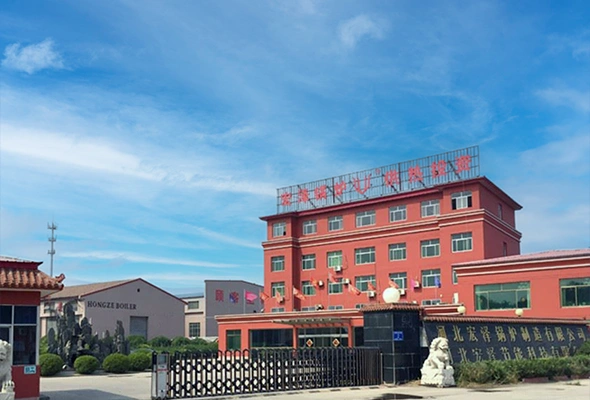
Nov . 21, 2024 16:13 Back to list
high pressure boiler types
High Pressure Boiler Types An Overview
High pressure boilers are essential components in a variety of industrial processes, generating steam or heat for different applications. They operate at pressures exceeding 15 psi, making them more efficient and capable of producing steam at higher temperatures compared to low pressure boilers. In this article, we will explore the various types of high pressure boilers, their applications, and considerations for their operation.
Types of High Pressure Boilers
High pressure boilers can be categorized based on several factors, including their design, fuel type, and mode of operation. Here are the most common types
1. Fire-Tube Boilers
Fire-tube boilers are one of the oldest designs in boiler technology. In these boilers, hot gases from combustion flow through tubes that are surrounded by water. The heat generated in the combustion process warms the water, producing steam. Fire-tube boilers are easy to operate and maintain, making them popular in smaller industrial applications. However, their efficiency diminishes at higher pressures, limiting their use in very high-pressure applications.
2. Water-Tube Boilers
Unlike fire-tube boilers, water-tube boilers circulate water through tubes that are surrounded by hot gases. This design allows them to operate at much higher pressures, making them suitable for power generation and large industrial processes. Water-tube boilers are known for their high efficiency and ability to quickly respond to changes in steam demand. They can also be designed to burn a variety of fuels, including natural gas, coal, and biomass.
3. Superheated Steam Boilers
Superheated steam boilers take the process a step further by raising the temperature of the steam beyond its saturation point. These boilers are used in applications where high energy efficiency is required, such as in electricity generation and heavy industrial processes. The superheated steam can drive turbines more efficiently, resulting in higher outputs and lower fuel consumption.
4. Electric Boilers
Electric boilers utilize electricity as their energy source, making them a clean and efficient option for applications with limited access to fossil fuels. They can operate at high pressures and temperatures, making them suitable for certain industrial processes. Electric boilers have low emissions and are often used in environments where environmental regulations are stringent. However, their operational costs may be higher due to electricity prices.
high pressure boiler types

Combination boilers, or combi-boilers, integrate both heating and hot water heating functions in one unit. They can switch between producing steam and providing hot water, making them versatile for various applications. These boilers can be designed to operate at high pressure and are particularly useful in commercial settings where space is at a premium.
Applications of High Pressure Boilers
High pressure boilers are widely used across various industries, including
- Power Generation High pressure boilers are crucial in power plants, where they generate steam to drive turbines for electricity generation.
- Manufacturing Many manufacturing processes require steam for heating, sterilization, and power generation. High pressure boilers provide the necessary steam efficiently.
- Food Processing The food industry employs high pressure boilers for sterilization, cooking, and drying processes, ensuring food safety and quality.
- Chemical Production In the chemical industry, high pressure boilers are used for different processes, including distillation and heating reactions.
Considerations for High Pressure Boiler Operation
Operating a high pressure boiler involves significant considerations to ensure safety and efficiency. Regular maintenance, such as inspections and cleaning, is essential to prevent the build-up of scale and corrosion. Monitoring water levels and pressure is crucial to avoid catastrophic failures. Operators must also be well-trained and familiar with the safety protocols, as working with high pressure systems can be hazardous.
Additionally, adhering to local regulations and standards is vital for safety and environmental compliance. Many regions have strict codes governing boiler operation, including emission limits and operational guidelines.
Conclusion
High pressure boilers play a vital role in modern industry, providing necessary heat and power for a wide range of applications. Understanding the different types of high pressure boilers, their specific applications, and the operational considerations is crucial for maximizing their efficiency and ensuring safe operations. As technology advances, the efficiency and designs of high pressure boilers will continue to evolve, meeting the demands of an increasingly energy-conscious world.
-
Best Steam Boiler Design PDF Free Design Calculation & Diagram Downloads
NewsJun.10,2025
-
Hot Boiler Water Heater Efficient Heating Solutions for Home & Commercial Use
NewsJun.10,2025
-
Steam Boiler Safety Devices High-Quality Protection Valves
NewsJun.10,2025
-
Ultimate Steam Boiler Checklist for Safety & Efficiency
NewsJun.10,2025
-
Optimal Hot Water Boiler Temperature Setting Guide
NewsJun.10,2025
-
Effective Hot Water Boiler Chemical Treatment Protect & Maintain
NewsJun.09,2025
Related PRODUCTS






















